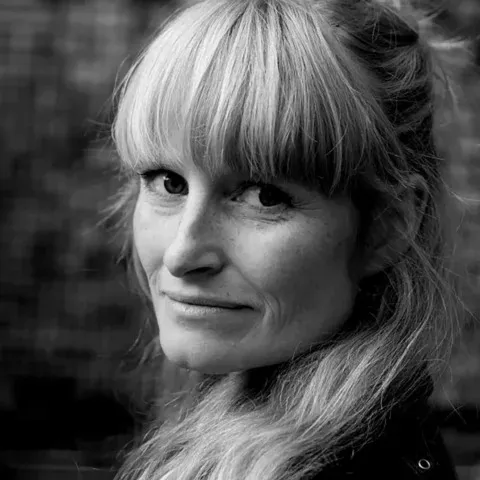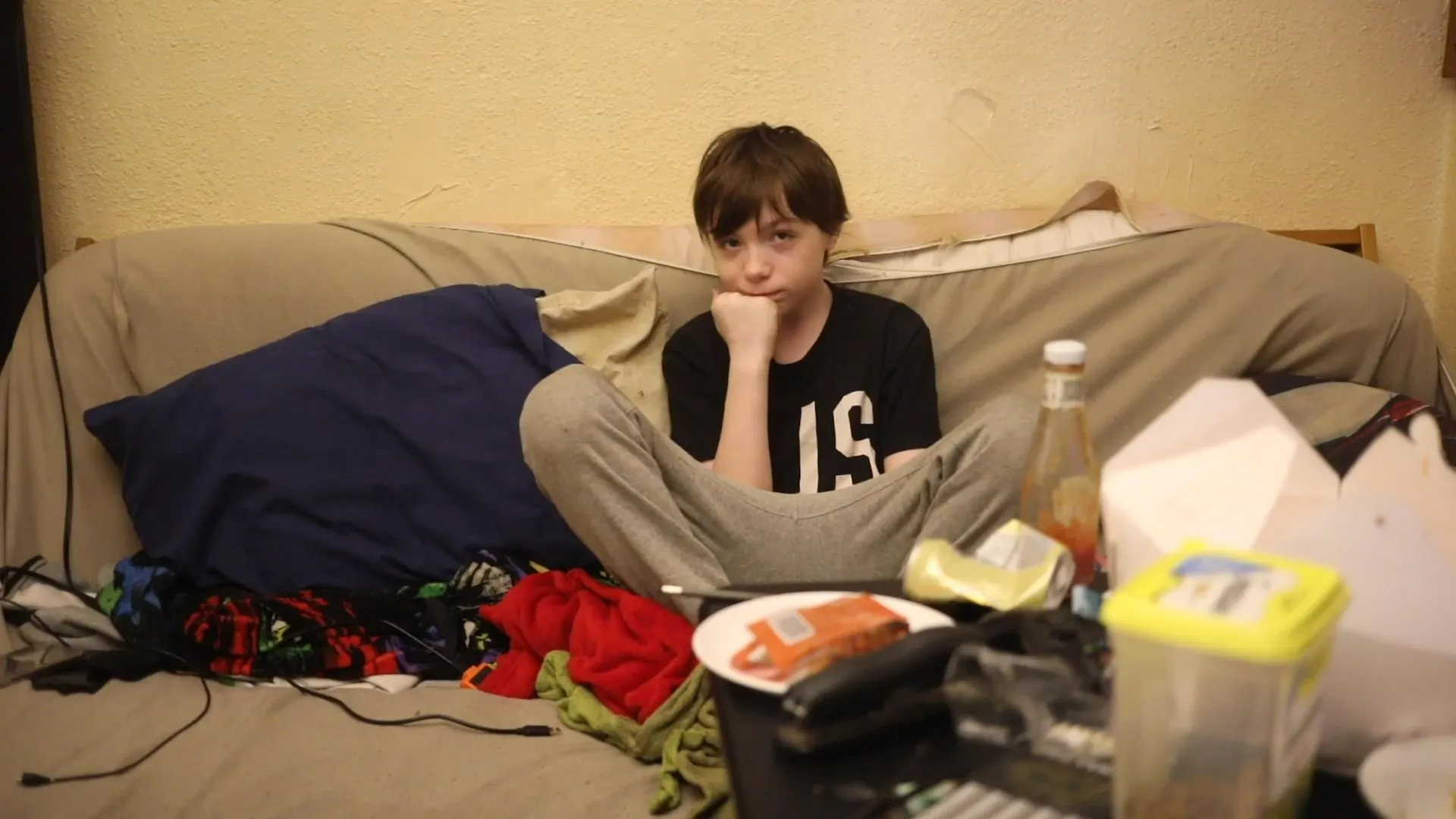“Who poured vodka on the cat?”—a line so striking and surreal it feels like it’s never graced the screen before. That is, until now. Spoken by 12-year-old Mikal in the documentary Flophouse America, which premiered at Copenhagen’s CPH:DOX festival in March 2025, these words earned the film a Special Mention in the DOX:Award category. Mikal’s question isn’t just a quirky outburst; it’s a window into his life, revealing both his concern for his cat, Smoky, and his frustration with his parents, the likely culprits behind the bizarre incident. Directed by Norwegian filmmaker Monica Strømdahl, this debut feature shines a light on a hidden America, where poverty and addiction shape the lives of millions.
Mikal: The Resilient Heart of the Story
In Flophouse America, Mikal emerges as a captivating figure—a child thrust into adult responsibilities. At just 12, he washes dishes in the bathtub and tends to Smoky’s needs while his parents are consumed by alcohol and cigarettes. Though not yet a teenager, Mikal often plays the parent in his chaotic household. Strømdahl, speaking to Deadline, describes him as a “dandelion child”—a Norwegian term for kids who thrive despite harsh conditions. “He’s got a fire inside, this strength,” she said. “He’s smart in school, street-savvy, and acutely aware of his surroundings, navigating his reality with incredible resilience.”

That reality is grim. The film opens with Mikal reciting sobering statistics: “The official poverty rate in the U.S. is 11.5%, meaning about 34 million people live in poverty.” He adds, “One in 10 kids—7.5 million—live in households with at least one parent struggling with alcohol use disorder.” These numbers frame Mikal’s world, a flophouse—a rundown hotel offering minimal shelter for families with nowhere else to go.
A Filmmaker’s Journey into America’s Margins
Strømdahl, a Norwegian outsider, was drawn to these overlooked lives as a photography student in the early 2000s. She first stayed in a flophouse in Brooklyn’s South Williamsburg, returning year after year. “I got to know the residents; they became my friends,” she told Deadline. What began as a photography project evolved into Flophouse America when she met Mikal and his parents, Jason and Tonya, during a cross-country exploration. “Mikal was 11 when I met him. My room was right across from theirs,” she recalled. “He was born in that hotel, grew up in its hallways, caught between poverty and his parents’ addiction.”

Photography, she felt, couldn’t fully capture their story. “I wanted to step back and let the family tell it in their own way,” she explained. “There’s something about voice and movement that lets them own their narrative.” The result is a raw, psychological portrait—Jason and Tonya’s bickering echoes Who’s Afraid of Virginia Woolf?, though tempered by moments of love, often expressed as “I love you” amid the chaos.
Flophouses: A Last Resort
Strømdahl’s lens exposes the flophouse phenomenon—cheap hotels offering weekly or monthly rates for the desperate. “It’s the next best thing to nothing,” she said. “Everyone needs a roof, a safe place.” Her research uncovered a nationwide housing crisis, with flophouses dotting every major city. She sought them out via negative TripAdvisor reviews—the worse the feedback, the more intrigued she became. “I felt a deep injustice for those living there,” she said. “I wanted to document this lifestyle before gentrification wipes it away.”
Mikal’s Voice and a Broader Impact
Mikal’s question about Smoky isn’t just a quirky highlight; it’s a poignant symbol of his struggle to find stability. Strømdahl became a silent partner in his life, filming from his perspective. “He saw me as a way to connect with his parents, to show them who they are,” she noted. “Through my presence, he felt seen and empowered—and so did they.”

The film’s premiere at CPH:DOX earned it a spot in the European Film Promotion (EFP) initiative, one of seven documentaries pitched to U.S. distributors like A24 and Neon. “It’s a huge boost,” Strømdahl said. “We want to make an impact, use this film as a tool. This program could reach more audiences.” EFP’s Nora Goldstein added, “Our goal is awareness. If they know these films exist, that’s a win.”
Conclusion
Flophouse America, available as of March 30, 2025, is more than a documentary—it’s a cry from America’s margins. Mikal’s unforgettable line, “Who poured vodka on the cat?” encapsulates a child’s resilience amid neglect. With its CPH:DOX acclaim and EFP backing, Strømdahl’s film could soon find a U.S. home, amplifying a story that demands to be heard. This isn’t just about a cat—it’s about a boy, a family, and a nation facing truths too often ignored.


 Bomba: el Roadster de 2025 Tesla finalmente está aquí, ¡más rápido, más inteligente e imparable!
Bomba: el Roadster de 2025 Tesla finalmente está aquí, ¡más rápido, más inteligente e imparable!
 Il y a 10 minutes : Angel Reese a choqué le monde en acceptant une offre de 10 millions de dollars d’Elon Musk : « Avec mon salaire actuel, je ne peux pas me permettre de vivre » et elle a également annoncé qu’elle prendrait sa retraite de la NBA à la fin de 2025, choquant tout le monde.
Il y a 10 minutes : Angel Reese a choqué le monde en acceptant une offre de 10 millions de dollars d’Elon Musk : « Avec mon salaire actuel, je ne peux pas me permettre de vivre » et elle a également annoncé qu’elle prendrait sa retraite de la NBA à la fin de 2025, choquant tout le monde.

